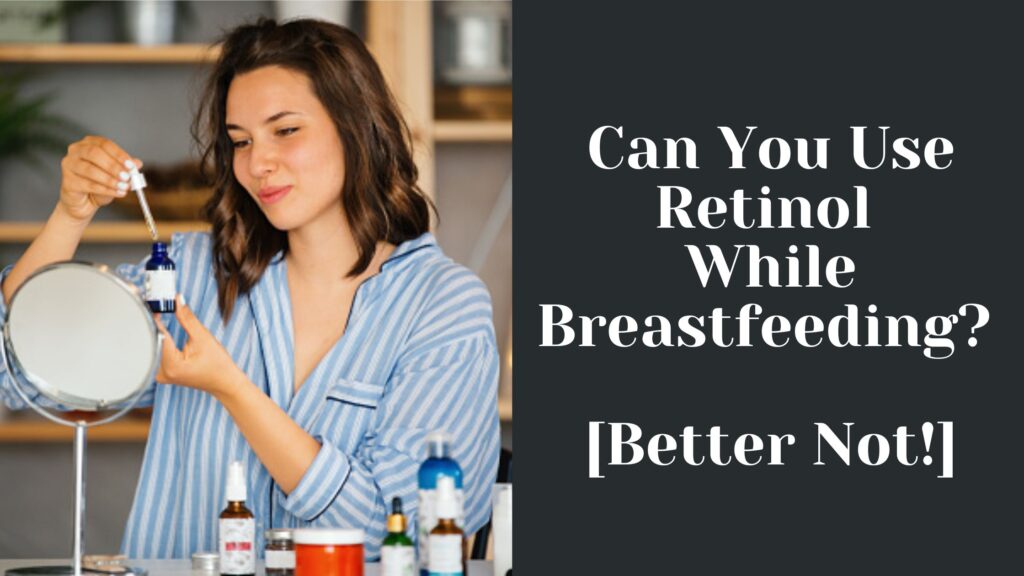Deciding what’s safe to eat while breastfeeding can be tricky. As a new mom, you’re likely getting plenty of advice on what you should and shouldn’t consume. One question that might come to mind is: Can I eat crab while breastfeeding? The short answer is yes, but there’s more to the story.
Seafood, including crab, can be an excellent source of protein and omega-3 fatty acids which are beneficial for both mom and baby. However, it’s important to consider the potential risks associated with seafood consumption – namely mercury exposure. High levels of mercury can affect an infant’s developing nervous system.
So here’s my advice: Enjoy your crab, but do so in moderation. Stick to low-mercury seafood options as much as possible and limit your intake of high-mercury varieties. It’s all about striking a balance between nourishing your body (and baby!) with nutrient-dense foods and keeping potential contaminants at bay.
Understanding the Basics of Breastfeeding Nutrition
Embarking on the journey of motherhood, I’m often asked about what to eat and what to avoid while breastfeeding. It’s an important topic that needs careful consideration. After all, nutrition plays a critical role in both your health and the health of your baby during this crucial period.
Let’s dive into some essential nutrients first. It’s paramount for breastfeeding mothers to consume sufficient protein, calcium, iron, vitamin A and D, folic acid, and omega-3 fatty acids. These nutrients aid in producing quality breast milk which is pivotal for your baby’s growth and development. They’re usually found in nutrient-dense foods like lean meats, dairy products, green leafy vegetables, whole grains, beans, nuts and seeds.
Now let’s focus on seafood – particularly crabs. Seafood can be a great source of protein and omega-3 fatty acids which are beneficial for your baby’s brain development. However, there’s a fine line you need to tread here because some seafood may contain high levels of mercury which can harm an infant’s developing nervous system.
Here are some statistics from FDA guidelines:
| Seafood | Mercury Level |
|---|---|
| Crab (Blue,and King) | Low |
| Lobster (Northern/American) | Medium-Low |
Accordingly with these facts:
- You should limit intake of fish with medium-high levels of mercury.
- You can freely eat up to 12 ounces per week from the list low in mercury level like crabs.
Remember though it’s always wise to consult with your healthcare provider before making any significant changes to your diet while breastfeeding.
Incorporating variety into your meals not only keeps things interesting but also ensures you get a broad spectrum of nutrients needed during breastfeeding. Just keep moderation as your mantra when indulging in delicacies like crab!
Importance of Seafood in a Breastfeeding Diet
Did you know that seafood could be a key player in your breastfeeding diet? Yes, it’s true! Seafood, including crab, is packed with essential nutrients that not only benefit you but also your little one.
Firstly, let’s talk about Omega-3 fatty acids. These are found abundantly in many types of seafood and they’re crucial for the development of your baby’s brain and eyes. In fact, studies show that infants whose mothers consumed sufficient amounts of Omega-3 during breastfeeding scored higher on cognitive tests down the line.
| Benefits | Type |
|---|---|
| Brain Development | Omega-3 |
| Eye Health | Omega-3 |
Next up – protein. Seafood provides high-quality protein which is vital for postpartum recovery. It aids in repairing cells and building new ones – something you’ll need as you navigate your way through early motherhood.
Seafood isn’t just about Omega-3s and proteins though; it serves up a host of other nutrients too:
- Iron: Helps to prevent anemia.
- Zinc: Supports immune function.
- Vitamin B12: Helps maintain nerve function.
Incorporating seafood into your breastfeeding diet can seem daunting initially due to concerns about mercury levels or allergies. But don’t worry! With some knowledge and cautionary measures, you can safely introduce these nutritional powerhouses into your meals and reap their benefits.
Remember though – moderation is key when it comes to consuming seafood while breastfeeding. While it does pack a punch nutritionally speaking, excessive consumption could potentially lead to issues due to contaminants present in some fish varieties.
So there we have it – adding some well-cooked crab or other forms of seafood into your diet could support both yours and your baby’s health during this important time. Just keep those portions under control!
Can I Eat Crab While Breastfeeding: Debunking the Myth
So, you’re a new mom and you’ve got this pressing question on your mind, “Can I eat crab while breastfeeding?” The myth-busting truth is an absolute yes! You can indeed savor those delectable crab dishes even as you breastfeed your little one. Let’s dive deeper into why it’s not just permissible but also beneficial.
Crabs are a fantastic source of protein – essential for both you and your baby. They’re packed with vitamins and minerals like vitamin B12, zinc, and selenium that support your health postpartum. More so, they provide omega-3 fatty acids crucial for the development of your newborn’s brain.
But here’s where the caution comes in. It’s critical to ensure that any seafood you consume is cooked thoroughly to avoid potential foodborne illnesses. Raw or undercooked seafood may harbor harmful bacteria which could pose risks to both mom and baby.
Another point worth noting is the presence of mercury in seafood. Some may have heard about high mercury levels in certain types of fish being potentially harmful to infants. Thankfully though, crabs generally contain low levels of mercury making them safer for consumption during breastfeeding.
Lastly, moderation is key when incorporating any new food item into your diet during breastfeeding. If you notice any allergic reactions or changes after eating crab, it’s important to stop consuming it and consult with your healthcare provider immediately.
In conclusion (without the initial comma), whether it’s king crab legs smothered in butter or a tasty crab salad – go ahead enjoy these culinary delights while ensuring the healthiest nutrition for yourself and your little one!
Tips for Consuming Seafood Safely During Lactation Period
Navigating the world of seafood during breastfeeding can feel like a minefield. But don’t worry, I’m here to offer some handy tips on doing this safely.
First off, it’s important to remember that not all seafood is created equal. While many types of fish and shellfish are excellent sources of nutrition, others may contain high levels of mercury. That’s why you need to be selective about what you’re eating. Stick to varieties known for having lower mercury content, such as salmon, shrimp, pollock, and catfish.
Here are a few more pointers:
- Limit your intake: Even with low-mercury options, moderation is key. Aim for two servings per week.
- Cook thoroughly: Ensure that all seafood is cooked properly before consuming.
- Check local safety advisories: If you’re catching your own fish or crab, make sure there aren’t any local advisories warning against consumption due to pollution or other concerns.
Now let’s talk about crabs specifically. Generally speaking, they’re safe to eat while breastfeeding because they typically have lower levels of mercury compared to other types of seafood.
However, it’s always crucial to remember these guidelines:
- Avoid raw or undercooked crab: It could lead to foodborne illnesses.
- Stay away from large species like King Crab: Larger species tend to accumulate more mercury over their lifespan.
While it might seem daunting at first glance, applying these simple strategies can help ensure both you and your baby enjoy the benefits of seafood without unnecessary risks during lactation period.
Conclusion: Balancing Your Diet for Healthy Breastfeeding
When we’ve navigated through the question of whether it’s safe to eat crab while breastfeeding, the answer has emerged as a resounding yes. However, I’d like to stress on the importance of balance and moderation.
Seafood, including crab, is an excellent source of lean protein and omega-3 fatty acids. These nutrients are essential for your baby’s growth and development. They also contribute to your own health during the postpartum period. But remember, it’s not just about eating one type of food in excess.
Balancing your diet is crucial when you’re breastfeeding. A well-rounded meal plan should include:
- Fresh fruits and vegetables
- Whole grains
- Lean proteins (like seafood)
- Dairy products
You might be tempted to focus only on foods rich in specific nutrients such as DHA or calcium – given their known benefits for breastfeeding mothers and babies. But honestly, by ensuring variety in your diet you’ll naturally cover all necessary nutritional bases.
In terms of quantity, there’s no one-size-fits-all approach here either. The amount you need depends largely on factors like your body weight and level of physical activity among others.
An often overlooked aspect is staying hydrated too! Water plays a vital role in milk production so don’t forget to keep up with your fluid intake.
Lastly but importantly, listen to what your body tells you. If certain foods make you feel uncomfortable or cause reactions in your baby (like food allergies), it’s best to avoid them until you stop breastfeeding.
In conclusion – yes, enjoy that crab if it tickles your taste buds! Just ensure it forms part of a balanced diet geared towards nourishing both yourself and your little one during this special phase.


